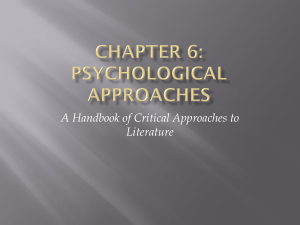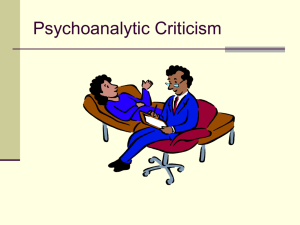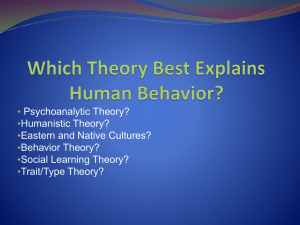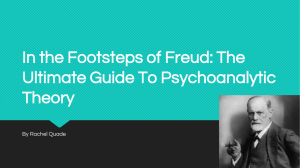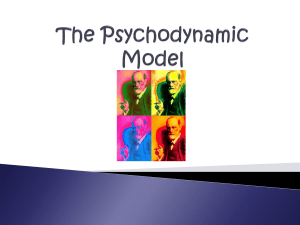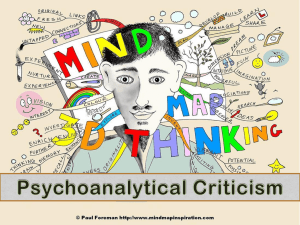The Trickster and the Hero
advertisement
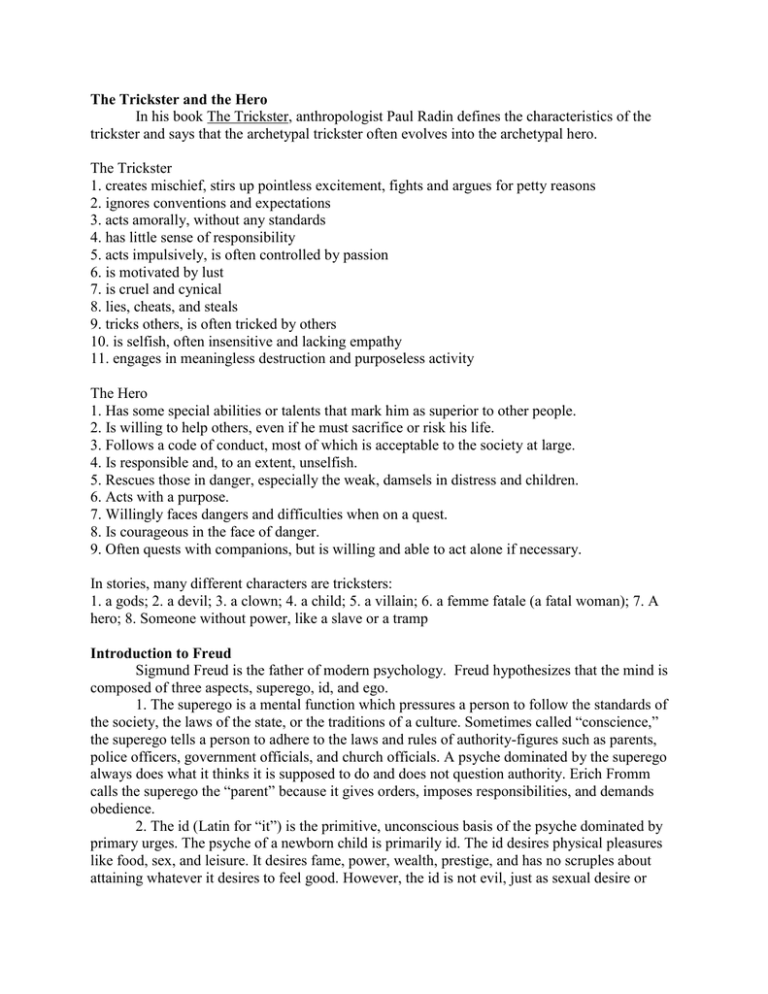
The Trickster and the Hero In his book The Trickster, anthropologist Paul Radin defines the characteristics of the trickster and says that the archetypal trickster often evolves into the archetypal hero. The Trickster 1. creates mischief, stirs up pointless excitement, fights and argues for petty reasons 2. ignores conventions and expectations 3. acts amorally, without any standards 4. has little sense of responsibility 5. acts impulsively, is often controlled by passion 6. is motivated by lust 7. is cruel and cynical 8. lies, cheats, and steals 9. tricks others, is often tricked by others 10. is selfish, often insensitive and lacking empathy 11. engages in meaningless destruction and purposeless activity The Hero 1. Has some special abilities or talents that mark him as superior to other people. 2. Is willing to help others, even if he must sacrifice or risk his life. 3. Follows a code of conduct, most of which is acceptable to the society at large. 4. Is responsible and, to an extent, unselfish. 5. Rescues those in danger, especially the weak, damsels in distress and children. 6. Acts with a purpose. 7. Willingly faces dangers and difficulties when on a quest. 8. Is courageous in the face of danger. 9. Often quests with companions, but is willing and able to act alone if necessary. In stories, many different characters are tricksters: 1. a gods; 2. a devil; 3. a clown; 4. a child; 5. a villain; 6. a femme fatale (a fatal woman); 7. A hero; 8. Someone without power, like a slave or a tramp Introduction to Freud Sigmund Freud is the father of modern psychology. Freud hypothesizes that the mind is composed of three aspects, superego, id, and ego. 1. The superego is a mental function which pressures a person to follow the standards of the society, the laws of the state, or the traditions of a culture. Sometimes called “conscience,” the superego tells a person to adhere to the laws and rules of authority-figures such as parents, police officers, government officials, and church officials. A psyche dominated by the superego always does what it thinks it is supposed to do and does not question authority. Erich Fromm calls the superego the “parent” because it gives orders, imposes responsibilities, and demands obedience. 2. The id (Latin for “it”) is the primitive, unconscious basis of the psyche dominated by primary urges. The psyche of a newborn child is primarily id. The id desires physical pleasures like food, sex, and leisure. It desires fame, power, wealth, prestige, and has no scruples about attaining whatever it desires to feel good. However, the id is not evil, just as sexual desire or ambition are not evil. Evil occurs when sexual desire or ambition are not restrained and injure others; we use different words to indicate lack of restraint and resulting evil: rape and embezzlement, for example. The id needs to have its desires moderated and balanced. All beings desire food because they need it to live. All animals, including humans, desire sex because that is nature’s way to propagate the species. The id’s greed, if moderated, can motivate a person to achieve success. Lust, if moderated, can lead to love and family life. Erich Fromm calls the id the “child” because it desires and wants but accepts no responsibility. 3. The ego is the mental function which tries to balance the rules of the superego with the desires of the id. The ego can choose to give up immediate pleasure in order to reach a state of greater gratification. For example, a student can choose to work hard to get a more satisfying job and more pay. Likewise, a person can choose to give up promiscuous sexual gratification and be sexually faithful to a spouse in order to have the pleasures of a long-term relationship and a stable family. The ego can adapt to changing situations. It can judge and evaluate customs, laws, and traditions and choose to follow them or not. The ego can choose to seek some pleasures but not others; it can defer temporary gratification to gain long-term gratification. Fromm calls the ego “the adult” because it is capable of making mature decisions, balancing the demands of the superego and those of the id. From A Drinking Life by Pete Hamill When I was twelve, I discovered Dr. Jekyll and Mr. Hyde. I’d seen the movie with Spencer Tracy and Ingrid Bergman, but the book was even scarier. With his gorgeous images and musical prose, Stevenson carried me into nineteenthcentury London, where fog rolled down narrow cobblestoned streets day and night (“A great chocolate-covered pall lowered over heaven…” Or, even better to my inflamed vision: “The fog still slept on the wing above the drowned city, where the lamps glimmered like carbuncles…”) I looked nup the word “carbuncles,” used it in school compositions….Where I also described fogs that slept and gas lamps that shimmered. But I never used the Stevenson paragraph that chilled my heart: He put the glass to his lips and drank at one gulp. A cry followed; he reeled, staggered, clutched at the table and held on, staring with injected eyes, gasping with open mouth; and as I there came, I thought, a change—he seemed to swell—his face became suddenly black and features seemed to melt and alter— and the next moment, I had sprung to my feet and leaped back against the wall, my arm raised to shield me from that prodigy, my mind submerged in terror. I read that passage and thought of my father. In Stevenson’s story, Dr. Jekyll says that he had limed “nine-tenths of life of effort, virtue, and control”’ but the chemical experiment had released Mr. Hyde, “the evil side of my nature.” I wanted that to be true of my father. When he first started a drinking session, he was often merry and funny, the joyful Irish singer of funny Irish songs; but as he went on, his face darkened, his eyes grew opaque, his jaw slack. Sometimes, he looked evil. And when he became enraged, I was often afraid of him. I saw the same eerie transformation in the other drunks of the neighborhood. Even Mr. Dix was decent enough until he downed too much of the amber liquid. After reading Stevenson’s great story, I could never look at my father the same way; I just hoped he would never come home with a silver-headed cane.
